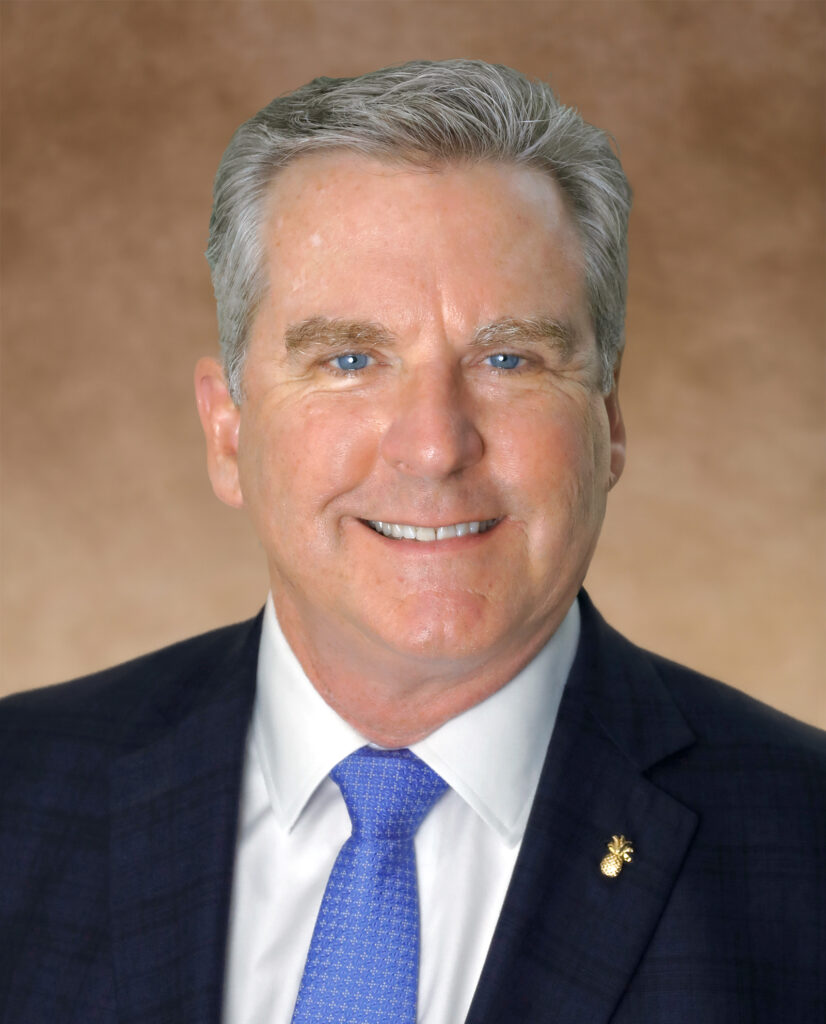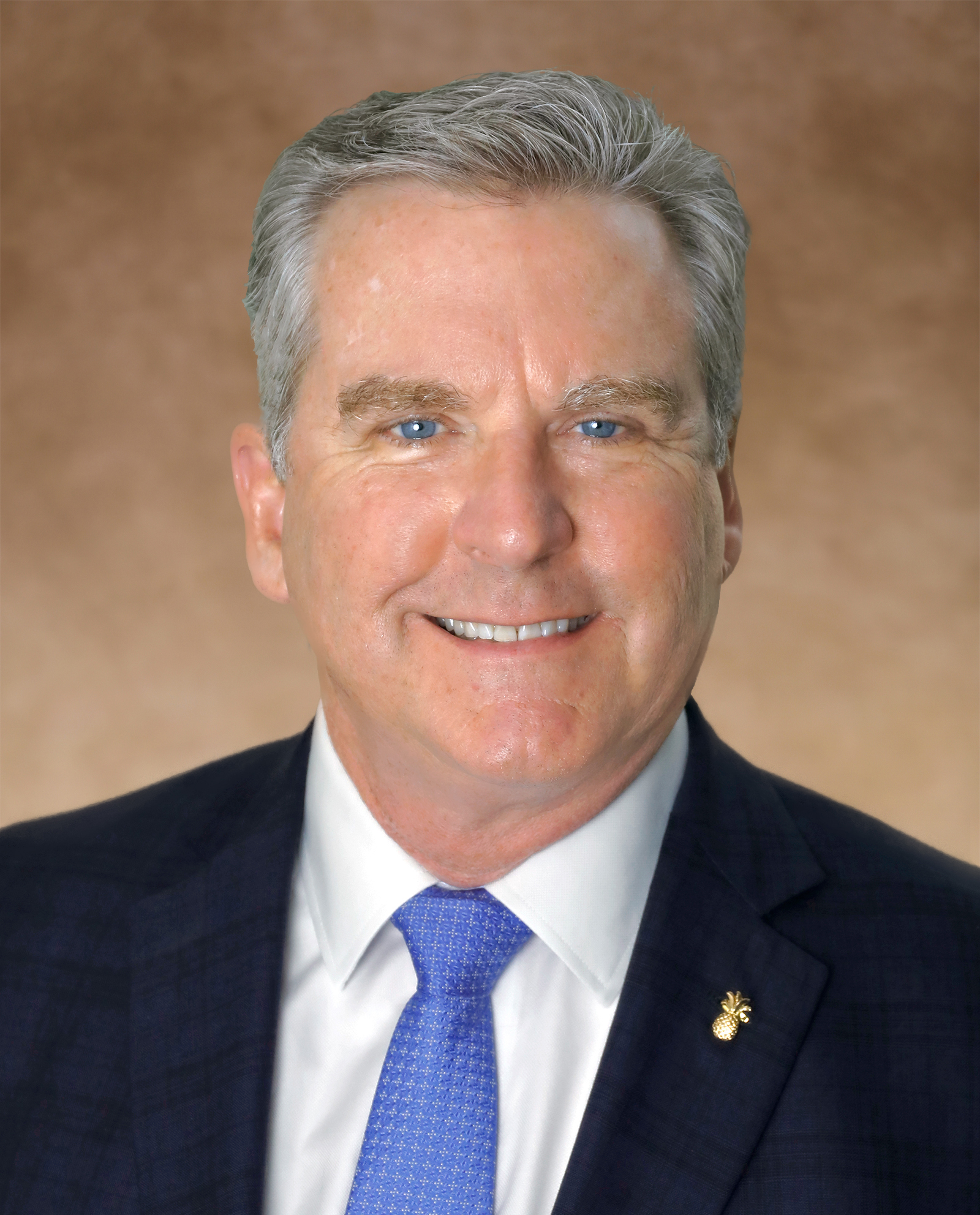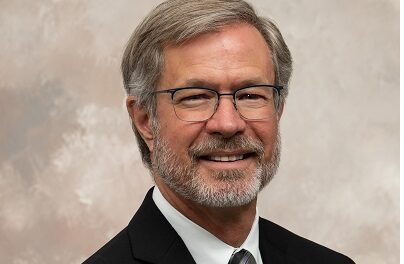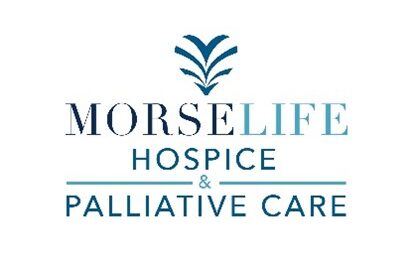By Vanessa Orr
In 2022, Albert ‘Bo’ Boulenger will take over as CEO of Baptist Health South Florida, replacing Brian E. Keeley, who has been its CEO for the past 35 years. And while Boulenger says that Keeley has served as an outstanding mentor, he was not the first.

“My father was a hospital CEO, and he was also a medic in World War II and part of the Greatest Generation, and that was inspiring to me,” explained Boulenger, who has been with Baptist Health since 1985.
“Because my father ran a number of large hospitals around the country, I got to observe the collaboration between physicians, nurses and staff in this unique ecosystem, and I knew that I wanted to be a part of such a challenging, rewarding profession,” he added. “Healthcare really chose me.”
Boulenger, who spent part of his youth in Tampa, received his undergraduate degree from the University of Florida and his master’s degree in health care administration from Washington University in St. Louis.
“I went straight from Washington University to an administrative residency at South Miami Hospital, and have since held a succession of leadership roles, including CEO of Homestead Hospital and CEO of Baptist Hospital, as well as COO of Baptist Health,” said Boulenger. “These positions provided me with experience in a number of settings from working in rural community hospitals to large tertiary hospitals to corporate positions.”
While Keeley will continue advancing the health system’s initiatives until his retirement, Boulenger has already taken on the day-to-day activities of the office.
“It’s not uncommon to have this type of transition period, especially with a long-term, iconic leader like Brian,” said Boulenger. “We’ve already worked together for 25 years in an extremely collaborative way; he has been a great mentor over the years.”
As the new CEO, Boulenger plans to continue to advance the strategic initiatives of the health system.
“At the core, that means helping people in the community live the healthiest lives possible,” he said. “To do that, we need to support our caregivers in innovative ways, which includes expanding into telemedicine and creating more value-based care opportunities by expanding our primary care services and our outpatient footprint in the four counties that we serve.
“We have a very detailed strategic plan that we will continue to follow,” added Boulenger, noting that as a senior executive, he had a hand in crafting the plan. “We are not going to miss a beat.”
Baptist Health recently opened the new $43.7 million Fishermen’s Community Hospital in Marathon, and will soon open another hospital in Doral. The health system plans to open more access sites such as urgent care centers and ambulatory centers in the future.
“We’re also looking to expand our institutes and hire more physicians, and we are recruiting the best and brightest from across the country to work at Baptist Health,” said Boulenger. “Our goal is to make it so patients don’t have to leave Miami for specialized care.”
Boulenger looks forward to facing whatever challenges the future brings.
“Healthcare is always challenging; that’s what makes it such a stimulating, rewarding industry in which to work,” he said. “The cost of healthcare is always an issue, and we’re doing our best to lower costs by providing value-based opportunities, leveraging technology and research, and improving access.”
Like many other industries, healthcare is struggling to find an adequate number of skilled caregivers. “All healthcare organizations are dealing with projected shortages, which is why our focus is on supporting Baptist Health’s 24,000 employees and 4,000 allied physicians—they are dedicated to our not-for-profit mission and are our number one strength.”
“We have a tremendous team of compassionate, committed individuals who come together every day to care for each other and our community,” he added.
Boulenger said that the aging population—or silver tsunami—is another concern as it will not only affect staffing but will cause a significant financial impact to hospitals’ bottom lines.
“As more people face chronic illnesses and age into the Medicare Advantage ranks, it will challenge funding for hospitals; we rely on a certain measure of commercial insurance to keep our margin of excellence,” he said.
“We also need to decide where and how much to spend on digital transformation,” he added. “As we saw with the pandemic, people want different ways to connect with us for scheduling, to get test results and to access timely information. We have to modernize and improve these interactions.”
As Boulenger transitions into the role of CEO, he said he is humbled and honored to be asked to serve the health system and the community in an expanded and more meaningful way.
“No one can replace Brian Keeley, and any leader would be foolish to try,” he said. “My plan is to take the incredible culture he built and continue to work from it—and enhance it.”




























